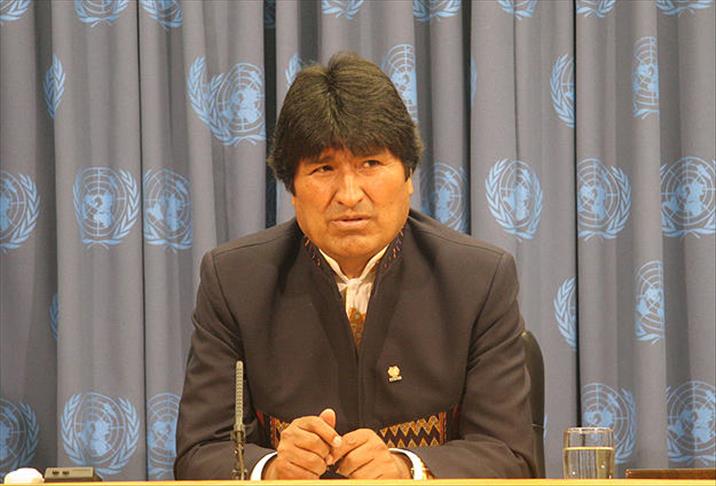Bolivia summons Europe ambassadors over Snowden spat
Bolivia has summoned ambassadors of France, Spain, Portugal and Italy over incident with Bolivian President Evo Morales’s plane last week, which it has described as the country’s first experience of "state terrorism"

The ambassadors of France, Spain, Portugal and Italy have been called to explain why their governments took the action, which meant Morales’s jet was detained in Austria for over thirteen hours while en route from Russia to Bolivia.
Bolivia called the incident involving the US and the European countries a "massive attack" and the "first act of state terrorism" against the country, its president and its people. Minister for Communications Amanda Davila, said the Bolivian government was asking those European governments to clarify where the "fallacy" and "lie" of Mr. Snowden being on the presidential plane came from.
Bolivia says the US knew that Snowden was not on the plane and instead wanted to belittle Morales over his ongoing criticism of America and its foreign policy.
France has already apologized for the incident, but most of the countries have variously denied closing their airspace, including Spain, which said the countries were simply reacting to urgent information that Snowden – sought by the US in connection with leaking classified information over the country’s surveillance programs, was on the plane.
Washington wants him arrested on espionage charges for divulging details of extensive secret surveillance programs. US President Barack Obama has said any countries that give Snowden shelter would face serious costs.
It is believed Snowden, who worked as a contractor for US security agencies, including the National Security Agency (NSA), remains in the international area of Moscow’s Sheremetyevo Airport.
A number of Latin American countries have condemned the incident, and three – Bolivia, Venezuela and Nicaragua – have offered Snowden political asylum from the US, which they accused of unfairly influencing European countries.
- Brazil also demands clarifications over Snowden
While the spat between Bolivia and Europe over Snowden and US interventions rumbles on, another Latin American country – Brazil – has sought clarifications over allegations the NSA spied on millions of e-mails and telephone calls entering and leaving Brazil.
US ambassador to Brazil, Thomas Shannon, was summoned to a meeting with Brazil’s Minister for Communications Paulo Bernando on Monday afternoon.
After the twenty-minute meeting with Bernando, the ambassador told reporters that the US surveillance program "had not been presented correctly" and that the US was "working with the Brazilians to answer their questions", without elaborating further.
Bernando said he was "in no doubt" that Brazilian citizens and institutions had been the target of US government espionage programs, given "even the European Parliament" had been subjected to US surveillance.
Shannon is set to leave the position later this year after President Dilma Rousseff has made a rare state visit to the US – the first in nearly twenty years.
Apart from the ambassador’s brief comments, the US has kept tight-lipped on the accusations, saying only that it would discuss the matter through official channels.
The espionage allegations were published on Sunday in Brazil’s O Globo daily newspaper, which on Monday ran another story accusing the NSA and the CIA of having a joint base in the Brazilian capital, Brasilia "at least under 2002".
The paper, which says it has gained access to documentation proving the allegations, hinted the interception could happen through underwater fiber-optic cables or through geostationary (fixed location) satellites that Brazil reportedly rents for its national communications system.
Bernando confirmed he had asked the Federal Police and Anatel, Brazil’s telecoms regulator, to investigate the circumstances involving the alleged monitoring and whether it happened with any support from other companies in the country.
Brazil has already promised to push through measures at the United Nations’ International Telecommunications Union (ITU) after the O Globo reports gave details that Brazil was the biggest target of US espionage in the Americas.


